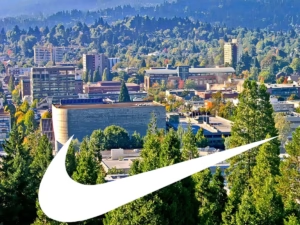High-Protein, No Progress? Here’s Why You’re Not Losing Weight, 3 Fitness Experts Reveal the 4 Mistakes You Might Be Making
Protein is often hailed as the king of nutrients for fat loss — and for good reason. It helps preserve muscle mass, keeps you feeling full, and supports recovery. But if you’ve increased your protein intake and still aren’t seeing progress on the scale, you’re not alone.
According to top fitness experts Jordan Syatt, Sohee Lee, and Jeff Nippard, there are several common mistakes that may be stalling your weight loss — even with a high-protein diet.
1. You’re Eating Too Many Calories — Even From Protein
It’s easy to assume that eating more protein equals faster fat loss. But as Jordan Syatt, certified strength coach and nutrition expert, points out:
“People often think that as long as it’s protein, it won’t lead to weight gain. But energy balance still matters. Extra calories, even from chicken or protein shakes, still count.”
✅ Fix: Track your total calorie intake. Use apps like MyFitnessPal or Cronometer to make sure you’re in a modest caloric deficit — not just adding more food.
2. You’re Not Strength Training
Protein helps build and repair muscle — but only when your body has a reason to. Without strength training, most of the extra protein won’t go toward muscle building.
Jeff Nippard, natural bodybuilder and science-based fitness educator, emphasizes:
“Protein and strength training work together. If you skip the resistance training, you’re missing half the equation.”
✅ Fix: Lift weights or do resistance workouts 2–4 times per week. This increases lean mass, boosts metabolism, and makes that protein work harder for your body.
3. Your Macros Are Off Balance
Focusing too much on protein can lead to under-consuming other key macronutrients like carbs and fats — both of which are vital for training performance and hormonal health.
“Some people cut carbs too drastically and end up sabotaging their own energy and metabolism,” warns Sohee Lee, certified strength coach and behavioral nutritionist.
“Balanced nutrition is more effective than extreme dieting.”
✅ Fix: Don’t just chase high protein numbers. Make sure your overall macro profile supports your energy needs and fitness level — typically a mix of protein, complex carbs, and healthy fats.
4. You’re Relying on Processed Protein Products
Shakes and bars can help in a pinch, but they often contain added sugars, artificial ingredients, or hidden calories that derail your progress.
“Just because a bar says ‘20g of protein’ doesn’t mean it’s healthy,” says Sohee Lee. “Whole foods will always be more filling and nutritious.”
✅ Fix: Prioritize whole-food protein sources like lean meats, fish, eggs, tofu, Greek yogurt, and legumes. Use supplements only when truly necessary.
Final Word
Eating more protein is a great step — but it’s not a magic bullet. If you’re not seeing results, take a closer look at your overall calories, exercise routine, macro balance, and food quality.
As Jordan Syatt puts it:
“There’s no secret shortcut. Sustainable results come from doing the basics well — consistently.”
Share this content:













